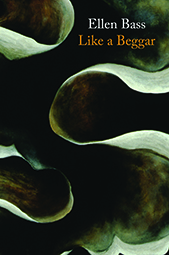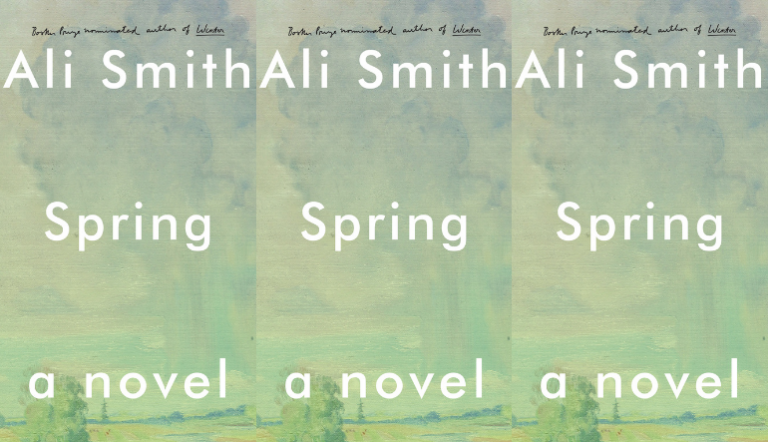Review: LIKE A BEGGAR by Ellen Bass
Like a Beggar
Ellen Bass
Copper Canyon Press, March 2014
70 pages
$16.00
Buy: book
Exquisitely wrought in language and imagery, Ellen Bass’s third collection meditates on sequencing images. Her poems open in one place and close elsewhere. She signals this with titles that point toward the firsts and lasts, such as “The Beginning of the End” and “The Morning After,” but also by focusing thematically on endings and beginnings (e.g. death, initial desire, birth.) to highlight how life presents one version of experience, one extraordinarily changed by later viewing.
Like A Beggar opens with the empathetic line, “Bad things are going to happen” (3) to offer a list of bad things, from tomato fungus to infidelities. Bass doesn’t leave us in regrets, but offers a turning final image on the tasting of sweetness. She concludes “Relax,”
Oh, taste how sweet and tart
the red juice is, how the tiny seeds
crunch between your teeth. (4)
The coupling of fungus with sugar makes the sugar sweeter by lifting the reader from the bad to the buoyant hope of some future good. Other first lines startle, as in, “The first time I saw my boyfriend’s penis” (10), while more startle only momentarily before offering storytelling openings such as, “What did I love about killing the chicken? Let me start” (31). Such beginnings open the door of the poem, welcoming the reader with common knowledge.
The reader follows Bass through each line to arrive at the closing image, a place made more beautiful in facing what came before. In “Reading Neruda’s ‘Ode to the Onion’” she offers a story of her son sharing poetry with coworkers. To explain why poets write odes, the final stanza begins, “The great ones regard every moment like this / catch it as it swims—onion, bird, flower, fish” (8) and offers for the art of poem-making the metaphor of a bear feasting on salmon. She concludes, “The masters eat everything right up to their death. / And then they grab that, too, in their failing fists” (8). In “Cold,” Bass and her son wait in Vancouver to catch sight of a runner. Her son begins to rub warmth into her back. Bass is grateful for such touch:
…For a moment
it seems possible that every frailty, every pain,
could be an opening, a crack that lets the unexpected
reach us. How can I remember this
when I’m old and need so much? (24)
Bass’s work reminds us of the hard jobs, the frigid waiting to catch sight of something magnificent, but Like a Beggar suggests that sometimes we catch what we already had in our hands. We feast there, on her ending images that resonate outward with the wisdom of gratitude.
The imagery in Like a Beggar is gorgeous. “Looking at a Diadegma insulare Wasp under a Microscope” opens with a juxtaposition of a wasp cleaning itself and ends with a glimpse of a neighbor girl grooming her hair. “Neighbor” begins with a portrait of a mother arguing with her children. Their curses carry across houses. The poem ends after those kids are grown and gone and the neighbor has a boyfriend and the sweetness of the body’s desire; this sound now lifts through one window into another. Such first and last images complicate by the contrast. Ultimately, much like Bass’s lover in “Ode to Repetition” is a mate she comes to “like a beggar” (15), this book turns the reader into a beggar. We want the repetition of the sweetness after the harsh, that place of which Bass writes:
…the way it was
before the world was born,
that fresh, that whole, nothing
broken, nothing torn apart. (68)
Laura Madeline Wiseman is the author of Some Fatal Effects of Curiosity and Disobedience (Lavender Ink, 2014), Queen of the Platform (Anaphora Literary Press, 2013), Sprung (San Francisco Bay Press, 2012), and the collaborative book Intimates and Fools (Les Femmes Folles Books, 2014) with artist Sally Deskins, as well as two letterpress books and eight chapbooks, including Spindrift (Dancing Girl Press, 2014). She is the editor of Women Write Resistance: Poets Resist Gender Violence (Hyacinth Girl Press, 2013). Wiseman has a doctorate from the University of Nebraska-Lincoln. She has received an Academy of American Poets Award, the Wurlitzer Foundation Fellowship, and her work has appeared in Prairie Schooner, Mid-American Review, Margie, and Feminist Studies.


